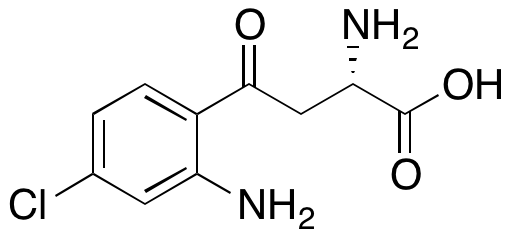Vistagen Announces Publication in Cells Demonstrating AV-101’s Potential for Treating Levodopa-Induced Dyskinesia in Patients with Parkinson's Disease

Vistagen (NASDAQ: VTGN) a late clinical-stage biopharmaceutical company aiming to transform the treatment landscape for individuals living with anxiety, depression and other central nervous system (CNS) disorders, today announced the publication of positive results from a preclinical study of the effects of AV-101, its oral NMDA receptor glycine site antagonist, in a widely used MPTP non-human primate model for reproducing motor complications of Parkinson's disease (PD), including dyskinesia (sudden uncontrolled movements) observed in PD patients treated with levodopa (L-Dopa). Findings from the preclinical study were published in the international, peer-reviewed journal, Cells. In the preclinical study, AV-101 reduced L-Dopa-induced dyskinesias (LID) by about 25% while maintaining the antiparkinsonian response to L-Dopa.
“While L-Dopa remains the most effective pharmacotherapy for Parkinson’s disease, the occurrence of LID is difficult to manage and drastically interferes with Parkinson’s patients’ quality of life. This preclinical study showed that AV-101 reduced LID with no adverse effects of treatment,” stated Shawn Singh, Chief Executive Officer of Vistagen. “Dr. Di Paolo has been at the forefront of research in neuropharmacology and treatments for Parkinson’s disease for decades. Her preclinical data from this study are compelling and highlight AV-101’s potential to improve the treatment paradigm for LID associated with Parkinson’s therapy by reducing LID while still maintaining the antiparkinsonian activity of L-Dopa.”
The MPTP primate model used in this study is the "gold standard" for animal modeling of PD and has been used extensively to study both antiparkinsonian therapies and LID. MPTP is a neurotoxin that kills dopaminergic neurons in the striatum, producing motor symptoms similar to those of PD. In this study, AV-101's efficacy against LID was measured through behavioral scores on a dyskinesia scale, and a Parkinsonian disability scale was used to measure levodopa antiparkinsonian efficacy. This study demonstrated that AV-101 significantly (p = 0.01) reduced LID without affecting the timing, extent, or duration of the therapeutic benefits of levodopa. No adverse events attributable to the drug were observed during the study. This preclinical study was conducted by Dr. Thérèse Di Paolo, Emeritus Professor in the Faculty of Pharmacy at Laval University and among the world's leading researchers focused on Parkinson's disease and LID, pursuant to Vistagen's research agreement with CHU de Québec – Université Laval Research Center in Québec, Canada.
The article is entitled “AV-101, a Pro-Drug Antagonist at the NMDA Receptor Glycine Site, Reduces L-Dopa Induced Dyskinesias in MPTP Monkeys,” and is available online at: https://doi.org/10.3390/cells11223530
The U.S. Patent and Trademark Office (USPTO) has issued US Patent No. 10,632,091 related to therapeutic use of AV-101 for treatment of dyskinesia induced by the administration of L-Dopa. The patent will be in effect until at least 2034.
About AV-101
AV-101 (4-chlorokynurenine) is an oral prodrug of 7-chloro-kynurenic acid (7-Cl-KYNA), which is a potent and selective full antagonist of the glycine co-agonist site of the NMDA receptor (NMDAR) that inhibits certain functions of the NMDAR. Unlike ketamine and many other NMDAR antagonists, 7-Cl-KYNA is not an ion channel blocker. At doses administered in studies completed to date, AV-101 has been observed to be well tolerated and has not exhibited dissociative or hallucinogenic psychological side effects or safety concerns, unlike other modulators of the NMDAR. Based on observations and findings from preclinical studies, Vistagen believes that AV-101, alone or in combination with FDA-approved oral probenecid, has the potential to become a new oral treatment alternative for certain CNS disorders involving the NMDAR. Vistagen is presently conducting an exploratory Phase 1B drug-drug interaction clinical study of AV-101 in combination with probenecid. The FDA has granted Fast Track designation for development of AV-101 as a potential adjunctive treatment for MDD and as a non-opioid treatment for neuropathic pain.
About Vistagen
Vistagen (Nasdaq: VTGN) is a late clinical-stage CNS-focused biopharmaceutical company aiming to transform the treatment landscape for individuals living with anxiety, depression and other CNS disorders. The Company is advancing therapeutics with the potential to be faster-acting, and with fewer side effects and safety concerns, than those that are currently available. Vistagen’s clinical-stage candidates are targeting multiple forms of anxiety and depression. PH94B and PH10 belong to a new class of drugs known as pherines, which are odorless and tasteless investigational neuroactive steroids designed with a novel rapid-onset mechanism of action that activates chemosensory neurons in the nasal passages and can impact the olfactory-amygdala neural circuits without systemic uptake or direct activity on CNS neurons in the brain. Vistagen is passionate about transforming mental health care and redefining what is possible in the treatment of anxiety and depression.
November 17, 2022



